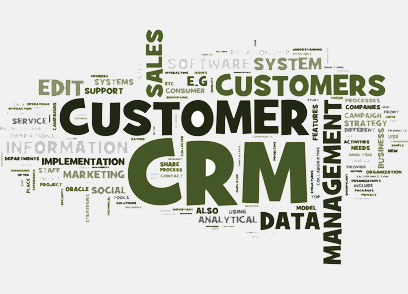Column: Bridging the Gap. From the December 2012 issue.
Is Customer Relationship Management (CRM) part of your firm’s strategy? If not, you’re missing out on a tremendous opportunity to harness and leverage valuable information that you have flowing into your firm on a daily basis. Unfortunately, you’re also not alone. Few firms invest the resources necessary to ensure that client relationships are managed properly throughout the process (from lead generation to service delivery). Those that do are recognizing a tremendous competitive advantage.
Client relationships are the lifeblood of any accounting firm and should be maintained in an efficient, organized system. Too often, firms relay on a number of disparate back office systems to manage this critical information resulting in redundancy, inconsistency and missed opportunities. A Customer Relationship Management (CRM) system is the most capable tool to track and centralize this data while managing workflow and employee-related activities.
What is CRM?
CRM within a firm varies depending upon specialization and industry but it is typically characterized by all of the following:
- Improved Client Relations
- Centralizes all contact information with key referral sources
- Encourages follow-up with new and potential clients
- Expands understanding of clients’ needs
- Enhanced Internal Management
- Establishes individual and group accountability for client management and service
- Connects multiple business offices to a common source of data
- Shares designated information among internal and external users
- Expanded Business Development
- Enriches the sale of non-recurring services
- Facilitates easy engagement solicitation
- Maintains demographics information for each client
- Demonstrates leadership in thought and the adoption of new technology
Why CRM?
CRM software offers a host of benefits that improve client relationships and streamline the business development process. It simplifies the relationship-building process while maximizing sales opportunities. In addition, CRM keeps that critical client information all in one easily accessible and searchable location. Some of the more compelling benefits a CRM system can offer your firm include:
- A “One Firm” Concept – client information is transparent and no longer kept in silos opening the door for true collaboration within the firm
- A Business Development Culture – through standardized sales processes, enhanced cross-selling opportunities, enhanced follow-up communications and improved overall client service to name a few features, CRM brings business development front of mind to the entire team
- Process Standardization – CRM helps standardize processes and provides the ability for any employee to track and measure client activities, thus ensuring client service by everyone in the firm
- Increase Efficiency – As you consolidate the number of data sources and related tools and steps required to carry out tracking client relationship information, the process naturally becomes more efficient. In the short run there is always some pain with transitioning to a new way to doing things but in the long run, things tend to run a lot smoother.
- Boost Client Service – A single system with consolidated information ensures that important tasks or data do not fall through the cracks. And, it enhances a firm’s client relationship processes, leading to improved responsiveness and service that ultimately translate to higher client satisfaction. It is much less costly to keep an existing client than to recruit new business. And happy clients tell others, a reality that leads to referral business.
- Analytics and Reporting – Simply capturing client data within a single system is not enough. Your CRM system should make that data easily accessible and offer tools to analyze it once the data have been retrieved.
Key Considerations
CRM is a major undertaking that requires true commitment to ensure success. It is not a turnkey solution that you install and you magically recognize all the benefits listed above. There is a lot of behavioral change involved and change management is a critical component to whether it lives up to its potential. Here are some of the most important considerations you should keep in mind as you set out on the path to tackling CRM:
- Firm Project (Not an I.T. Project) – this cannot be solely an I.T. project and it cannot be solely a business user project. Both parties must work hand-in-hand throughout the planning, design, implementation and training phases to ensure success.
- Communication & Training – Clear and regular communication is critical to the success of a CRM implementation. As I said before, you’re asking people to change some deep rooted behaviors and that doesn’t come easy.
- Tone at the Top – Leadership must be bought in from the beginning. This can’t just be lip service either, the team needs to see you using the system and “walking the talk.”
- Accountability – Management needs to set up a system of accountability to ensure that people are using the system. This is particularly important in the early stages of adoption.
While implementing a CRM system is no small endeavor, client relationships are too important to be mismanaged and kept in siloes. With the advances in cloud technologies, there are solutions available in the market at price points that didn’t exist even a few years ago. Most of these systems are highly customizable and can be adapted to meet your firm’s specific needs. However, the success of implementing a CRM system in your firm will be determined by the commitment from the top. If you haven’t made CRM part of your firm strategy, I encourage you to do so.
Thanks for reading CPA Practice Advisor!
Subscribe Already registered? Log In
Need more information? Read the FAQs
Tags: Firm Management





